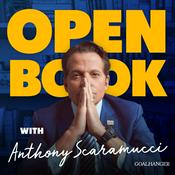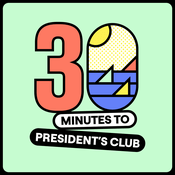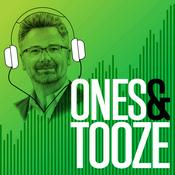349 episodes
- In Part 2 of our episode on Charles Perrow’s book Normal Accidents, we carry the framework forward into the 21st century to consider newer technological systems (especially in information technology) and the Y2K problem that was looming when the updated edition of the book was published in 1999. Is there any hope for mitigating the potential for new forms of high-risk accidents, or are we just stuck with having to deal with the occasional mass disaster?
- This month we are discussing Charles Perrow’s book Normal Accidents that addresses the risks associated with complex, tightly coupled high-risk technological systems. Through analyses of numerous accidents and incidents involving nuclear power plants, petrochemical plants, aerospace and maritime systems, and others, Perrow derived a framework that showed how high-risk systems are prone to accidents if they are highly complex and the components are tightly coupled. He also argued that efforts to improve safety such as more meters and indicators can have the opposite effect of complicating the operator’s ability to control a catastrophic situation.
- Coming soon! Our next episode features a 1999 book by Charles Perrow titled Normal Accidents that addresses the risks associated with complex, tightly coupled high-risk technological systems. With the Three Mile Island disaster and a host of other catastrophes, Perrow built a framework that helps forecast which kinds of technologies are most at risk. However, he suggests there are constraints regarding what one can do to preclude accidents.
- In Part 2 of our episode on five works of Henry Mintzberg, we move toward the contemporary environment and ask ourselves how much has changed since the Rise and Fall of Strategic Planning was published. After all, some of the very systems that Mintzberg criticized heavily are still very much in use, and still appear to exhibit some of the same failings. So what should be done?
- This month we return to the works of Henry Mintzberg, whose book Simply Managing we covered way back in Episode 14. This time, we decided to cover a number of works covering broad themes of strategy development and organizational planning, along with critiques of extant design school works. We divided five works among us to discuss in which he argues about why strategies and plans so often seem to fail, why planners seem so out of touch with the rest of the organization, and why even the processes of strategy development and planning may be inherently flawed.
More Business podcasts
Trending Business podcasts
About Talking About Organizations Podcast
Talking About Organizations is a conversational podcast where we talk about one book, journal article or idea per episode and try to understand it, its purpose and its impact. By joining us as we collectively tackle classic readings on organization theory, management science, organizational behavior, industrial psychology, organizational learning, culture, climate, leadership, public administration, and so many more! Subscribe to our feed and begin Talking About Organizations as we take on great management thinkers of past and present!
Podcast websiteListen to Talking About Organizations Podcast, The Prof G Pod with Scott Galloway and many other podcasts from around the world with the radio.net app

Get the free radio.net app
- Stations and podcasts to bookmark
- Stream via Wi-Fi or Bluetooth
- Supports Carplay & Android Auto
- Many other app features
Get the free radio.net app
- Stations and podcasts to bookmark
- Stream via Wi-Fi or Bluetooth
- Supports Carplay & Android Auto
- Many other app features


Talking About Organizations Podcast
Scan code,
download the app,
start listening.
download the app,
start listening.



































